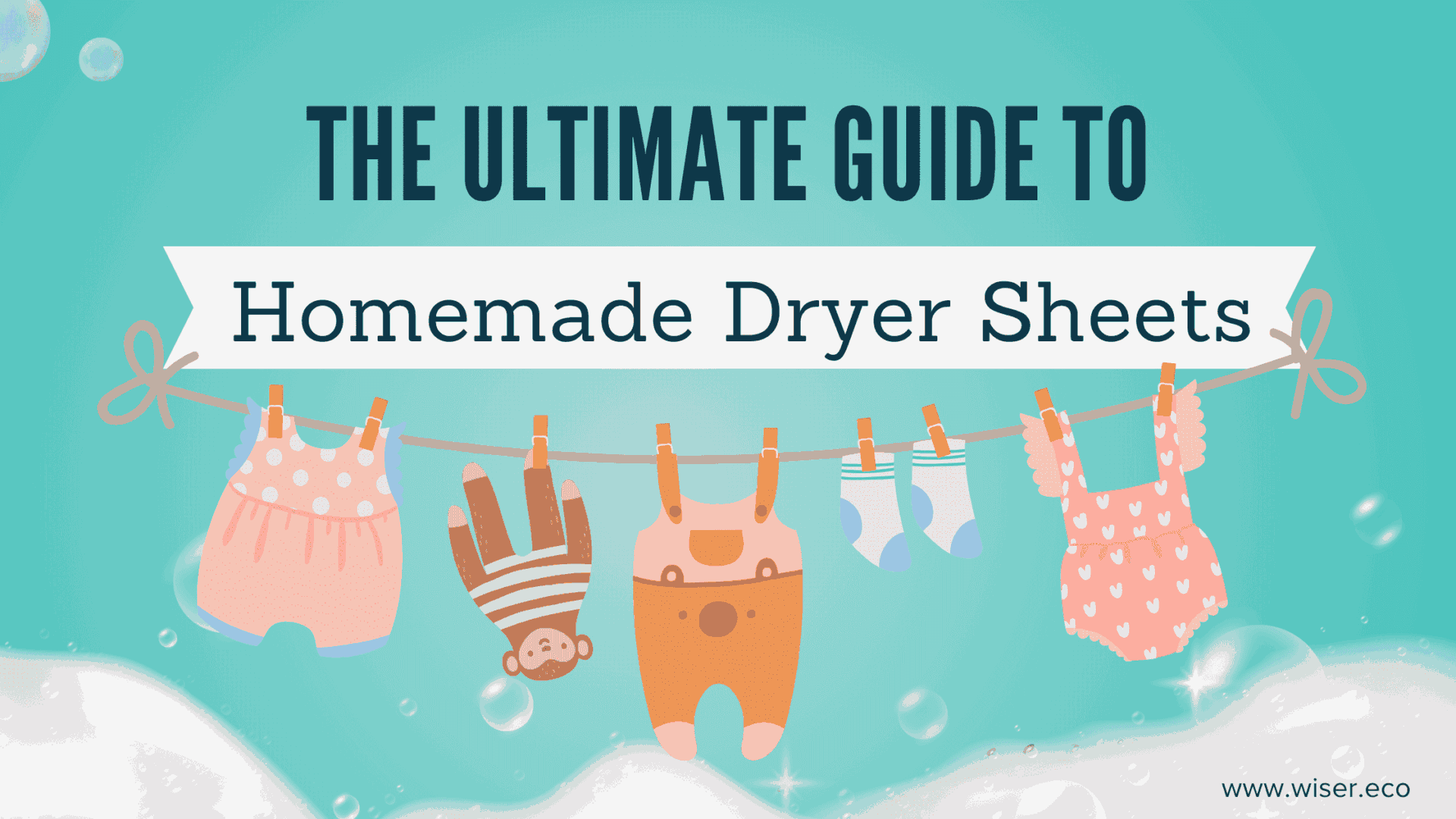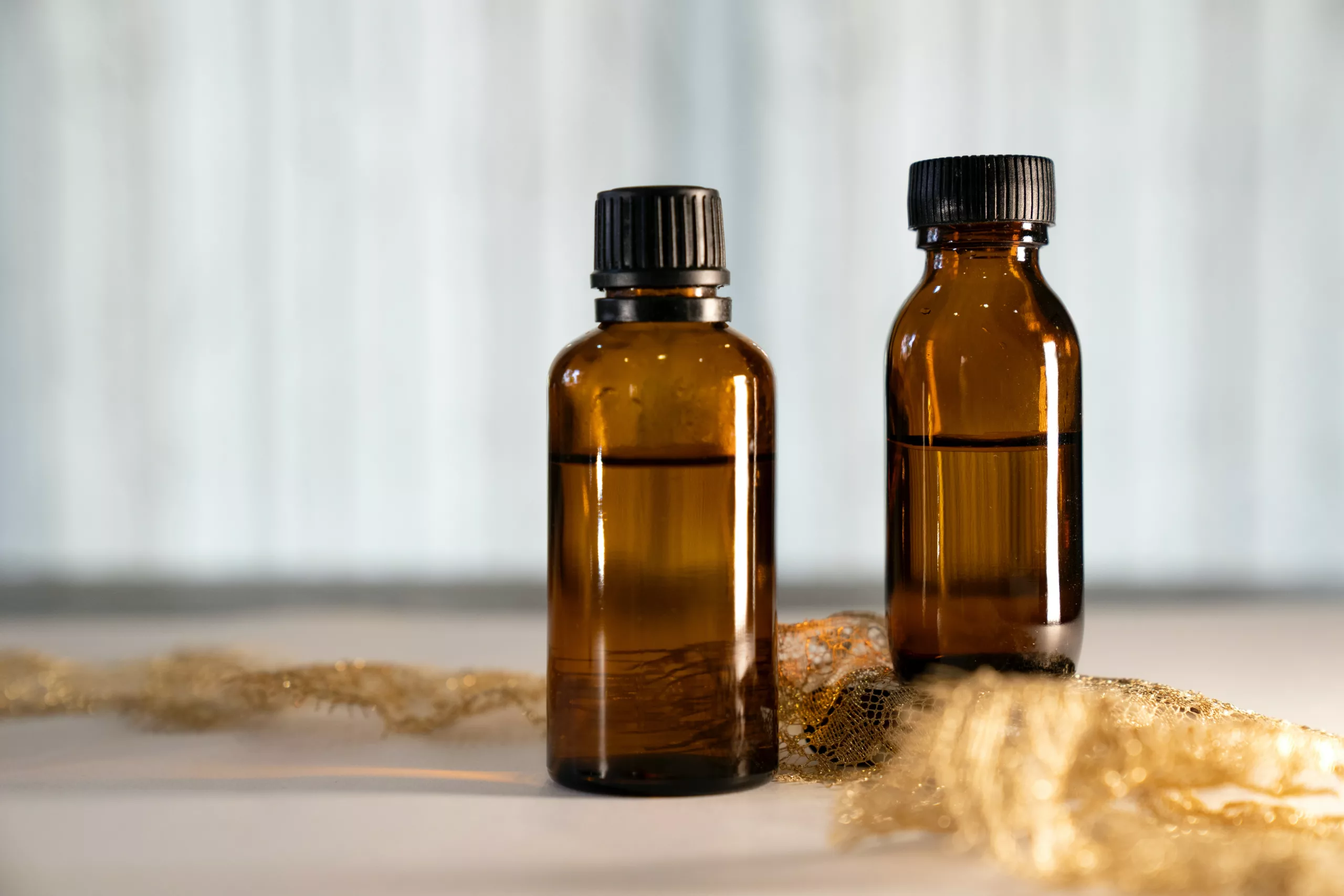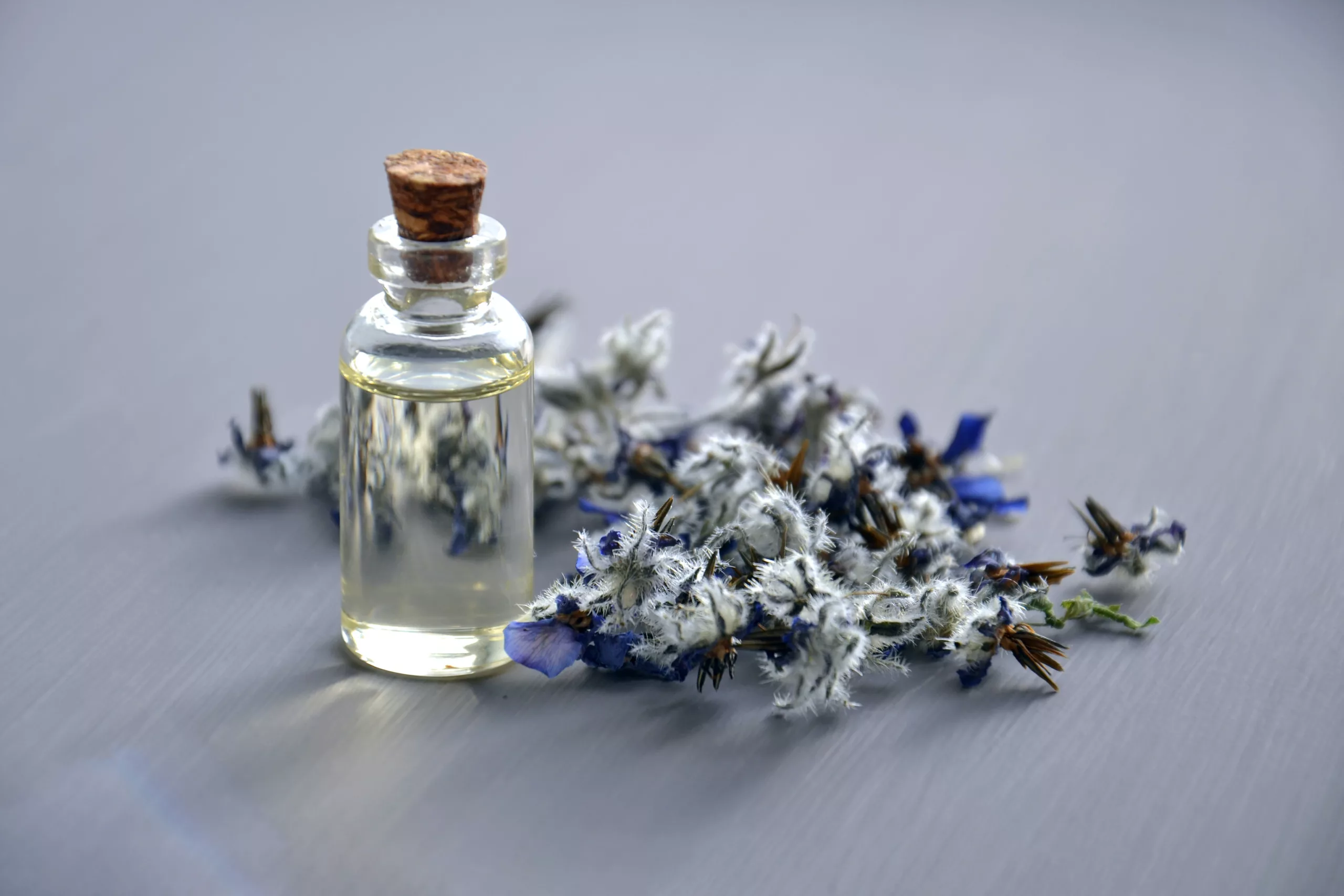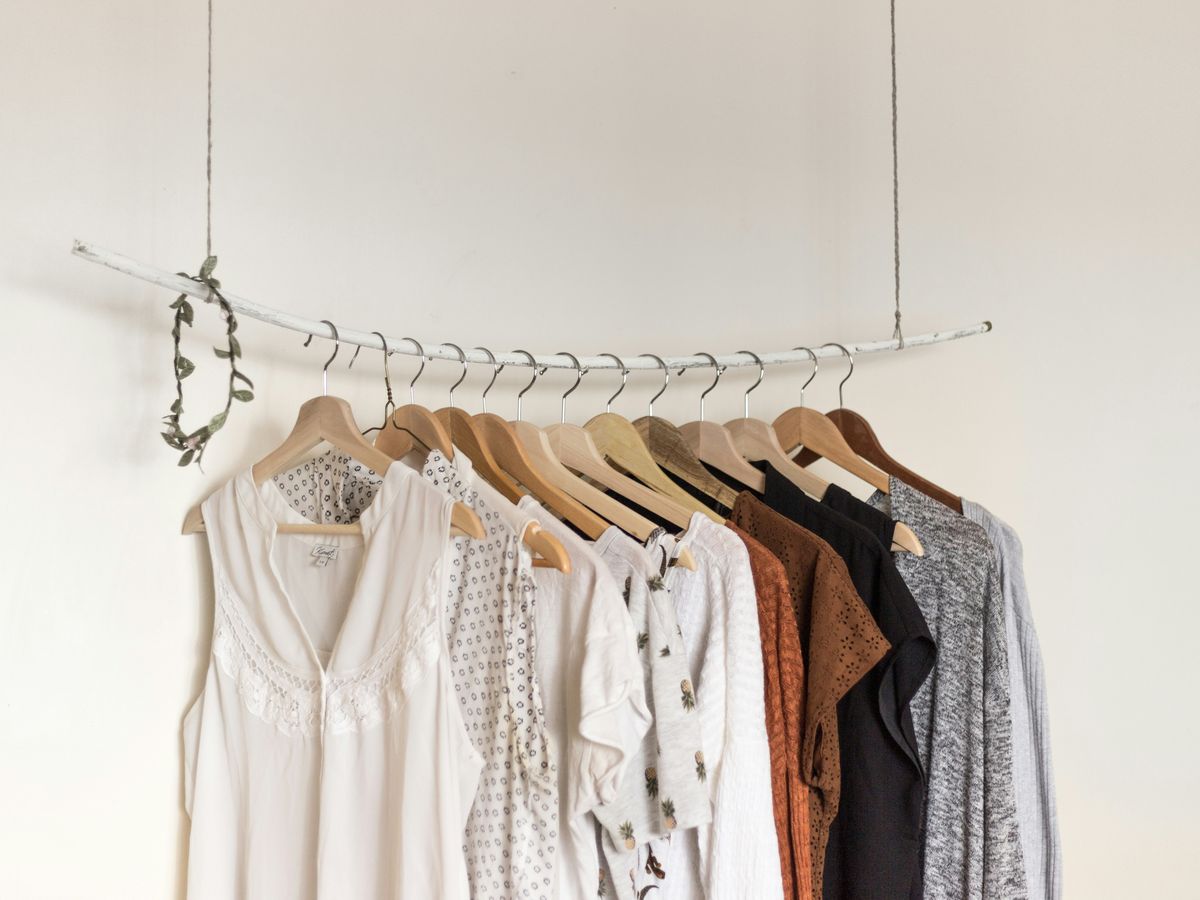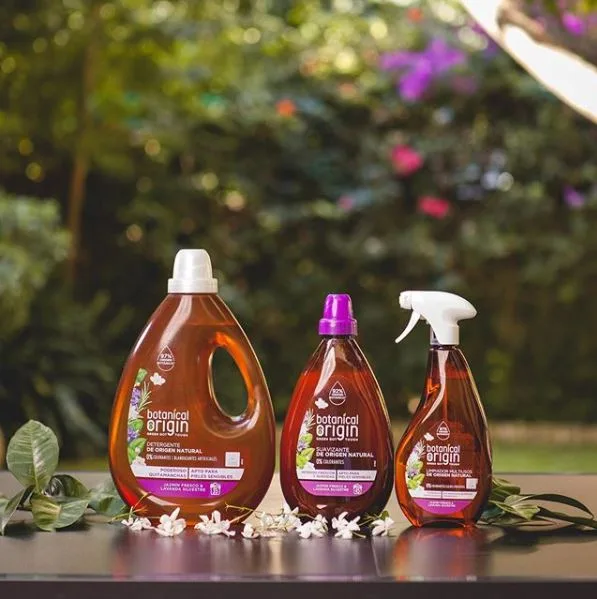In a world with the growing significance of sustainable laundry alternatives, we must change our everyday practices. Take laundry, a routine that directly impacts our environment and well-being. Amidst the convenience of commercial dryer sheets lie many environmental and health problems.
But fear not, for mindful alternative delves into the heart of this matter: homemade dryer sheets. Homemade dryer sheets have multiple eco-friendly uses. This comprehensive guide is determined to illuminate the path toward an eco-friendly solution that serves its purpose and embodies a deep sense of responsibility towards our planet.
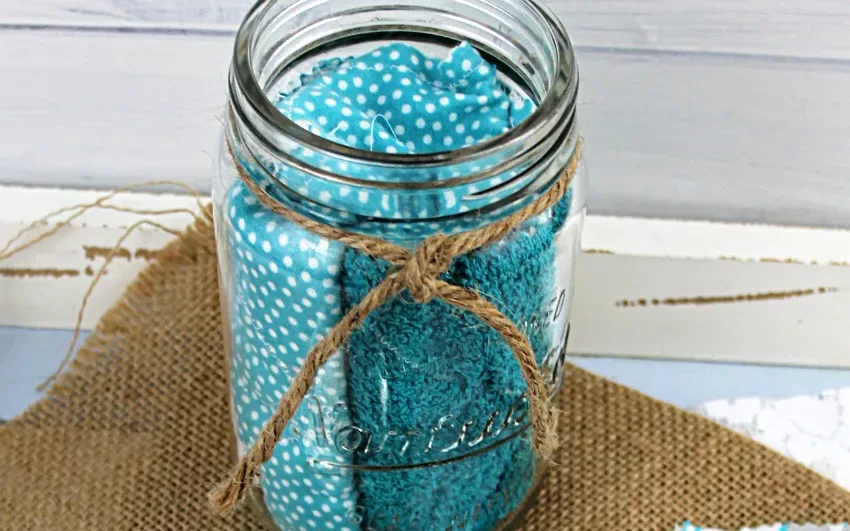
Credits: salvagesisterandmister
What are Dryer Sheets?
Dryer sheets, those unassuming and often fragrant pieces of fabric, are pivotal in enhancing your laundry experience. While composed of a layer of polyester or cellulose fibers, these sheets are infused with liquid softeners, lubricants, and captivating scents that activate under your dryer’s heat and tumbling motion. The result? A multifaceted solution that goes beyond a pleasant aroma.
At their core, dryer sheets address a range of laundry concerns. First and foremost, they wage war against the dreaded static electricity that tends to accumulate in fabrics during the drying process. Think of socks clinging together or shirts crackling with a peculiar energy – dryer sheets deftly neutralize this charge, ensuring your clothes emerge smooth and static-free.
Why Choose Homemade Dryer Sheets?
Homemade dryer sheets seem to be the perfect solution for maintaining healthy laundry. But are there any other benefits? Eco-friendly dryer sheets are one-of-a-kind inventions, taking the world one laundry set at a time. The benefits of these homemade dryer sheets far exceed your daily laundry chores. Let’s see why eco-friendly dryer sheets are the best organic laundry solutions.

Credits: yummymummyclub
Environmental Benefits:
Eco-friendly dryer sheets serve environmental benefits by adopting the following approaches – reduced waste, chemical-free, and cost minimization. These approaches ensure that homemade dryer sheets do not burden the ecological balance and natural resources. The environmental impact of dryer sheets is explained below:
Reduced Waste
Commercial dryer sheets, often packaged in non-recyclable materials, contribute to the ever-growing mountain of single-use waste. On the other hand, homemade dryer sheets introduce a refreshing twist by embodying the essence of reusability. Crafted from eco-conscious materials and stored in sustainable containers, these homemade sheets aim to diminish waste, aligning perfectly with the ideals of a planet-friendly lifestyle.
Chemical-Free Approach
A glance at the ingredients list of commercial dryer sheets may raise eyebrows, revealing a cocktail of synthetic fragrances and chemicals. When eventually washed into waterways, these substances can wreak havoc on aquatic ecosystems. Homemade dryer sheets, in sharp contrast, proudly champion an all-natural, biodegradable stance. By leveraging ingredients from nature’s bounty, these sheets ensure your laundry routine becomes a force for good rather than a potential environmental hazard.
Cost-Effectiveness
In the world of economics, small changes often lead to big savings. Crafting your dryer sheets stands as a prime example of this principle. While it is undeniable that the initial purchase/investment might be heavy, the long-term financial benefits you can accrue are uncountable. Combining the reusability factor of eco-friendly dryer sheets and their cost-effectiveness leads to significant savings over time – an appealing prospect for a conscious consumer looking to adopt sustainable laundry alternatives without hurting his pockets.
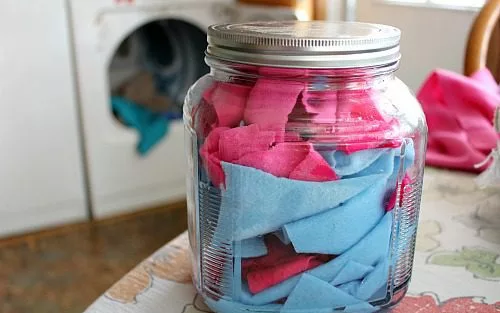
Credits: acultivatednest
Health and Skin Benefits:
Homemade dryer sheets – an eco-friendly alternative that reduces your carbon footprint also offers many health and skin benefits. These natural fabric softeners are gentle on the skin and keep it healthy for the Future. Here are the major skin and health benefits of homemade dryer sheets:
The Fragrance Factor
One of the most compelling reasons to opt for homemade dryer sheets is the avoidance of synthetic fragrances, a ubiquitous element in commercial products. These synthetic scents might bestow a pleasing aroma but often harbor hidden dangers. Research has indicated that synthetic fragrances can contribute to respiratory problems, triggering allergies, asthma, and even migraines in sensitive individuals. By transitioning to eco-friendly dryer sheets, you bid farewell to these potential hazards, allowing your family to breathe easier and healthier.
Gentle on Skin
Our skin often holds a central role in the journey towards optimal health and wellness. Unfortunately, commercial dryer sheets can concern those with sensitive or delicate skin. As Loaded with chemicals and synthetic additives, these sheets can provoke skin irritations and discomfort, leaving a trail of rashes and itchiness. On the other hand, homemade dryer sheets open the doors to an all-natural experience. Free from harsh chemicals and synthetic agents, these sheets offer a soothing touch to your garments, ensuring that your skin remains unburdened by unnecessary irritants.
The All-Natural Advantage
A defining hallmark of eco-friendly dryer sheets lies in their inherent all-natural composition. When you create your dryer sheets, you wield complete control over the ingredients, fostering a deep sense of trust and transparency. This personalized touch eliminates the risk of unforeseen allergic reactions, providing a haven for those with sensitivities. Your laundry becomes a canvas for wellness, adorned with elements that nurture rather than detract from your health.
Ingredients and Materials Needed
Homemade dryer sheets or DIY dryer sheets are easy and simple to make. We must look at the ingredients and materials needed before creating any organic laundry solution such as eco-friendly dryer sheets. We will explain the sustainable sourcing of these ingredients and eco-friendly brands that provide these materials to you!
1. Cloth baby wipes
Cloth baby wipes or old fabric scraps are pivotal in crafting eco-friendly dryer sheets. These absorbent materials serve as the carrier for the concoction of white vinegar and essential oils. When moistened with this mixture, the cloth becomes an effective vehicle for imparting the natural freshness of essential oils and the deodorizing power of vinegar to your laundry. As the dryer’s heat disperses the concoction, the cloth ensures an even distribution of these beneficial elements, elevating the effectiveness and eco-friendliness of the homemade dryer sheets.
If you have run out of old scraps of fabric at home, you can buy baby wipes from these eco-friendly brands:
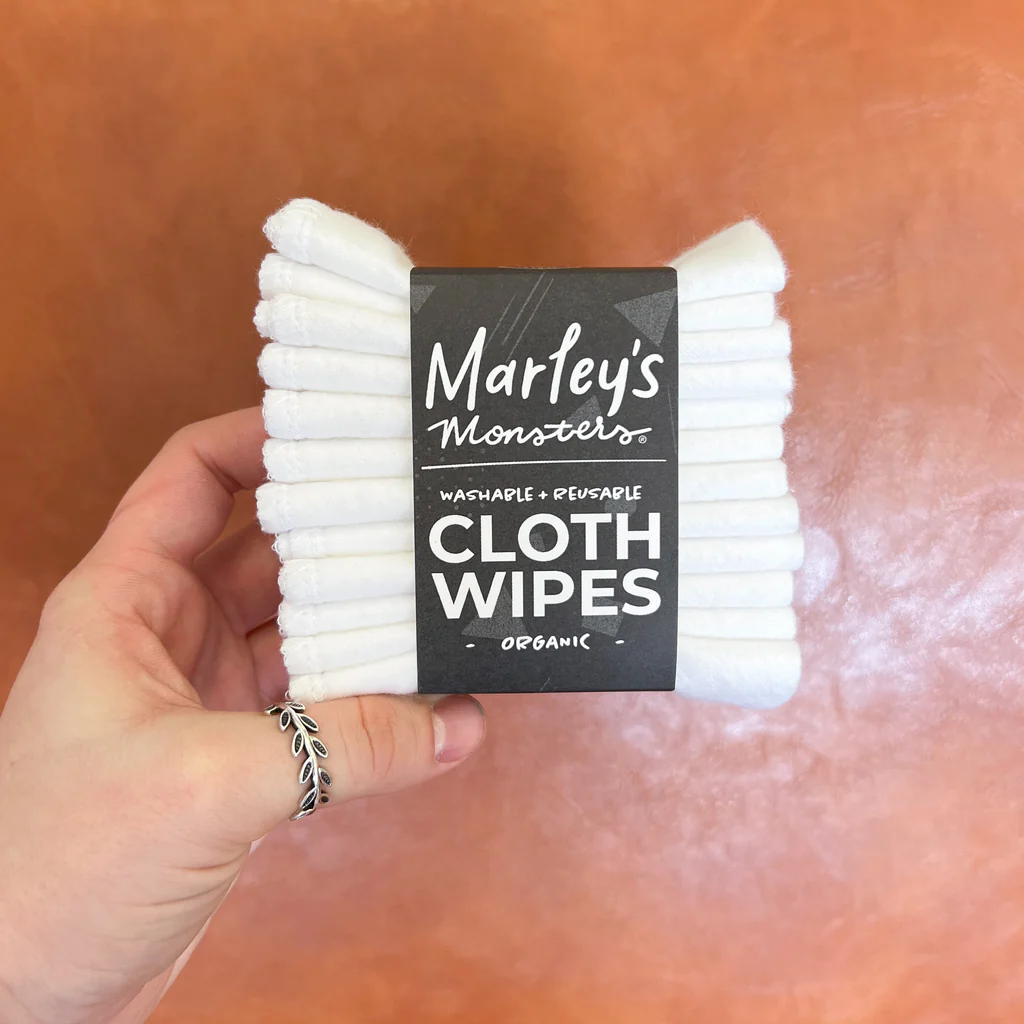
Introducing Marley’s Monsters’ sustainable baby wipe solutions, priced between $20 and $38. They are crafted with utmost eco-consciousness, so these reusable baby wipes are exclusively fashioned from undyed organic cotton. Measuring 7 “x 8”, the single-ply Organic Unpaper Towels are versatile alternatives, functioning as baby bum wipes, facial tissues, face wipes, reusable paper towels, and even toilet paper.

Presenting Esembly’s sustainable answer to baby wipes, priced at an affordable range of $14. As they focus on chemical-free purity, these organic cotton wipes offer a straightforward and wholesome choice. Meticulously manufactured in Pakistan, each wipe is fashioned from 100% GOTS-certified organic cotton, aligning with Esembly’s commitment to eco-friendliness.
2. Essential Oils
Essential oils are more than mere fragrances, offering a multifaceted boon to homemade dryer sheets. Beyond scent, these oils harbor properties with distinct benefits for fabrics. For example, tea tree oil boasts antibacterial qualities, lending a hygienic touch. As they blend with white vinegar, essential oils give the cloth wipes a natural freshness. As they infuse fabrics, the oils enhance the laundry experience by neutralizing odors and enhancing softness. The artful fusion of essential oils elevates eco-friendly dryer sheets, harmonizing eco-friendliness with fabric care.
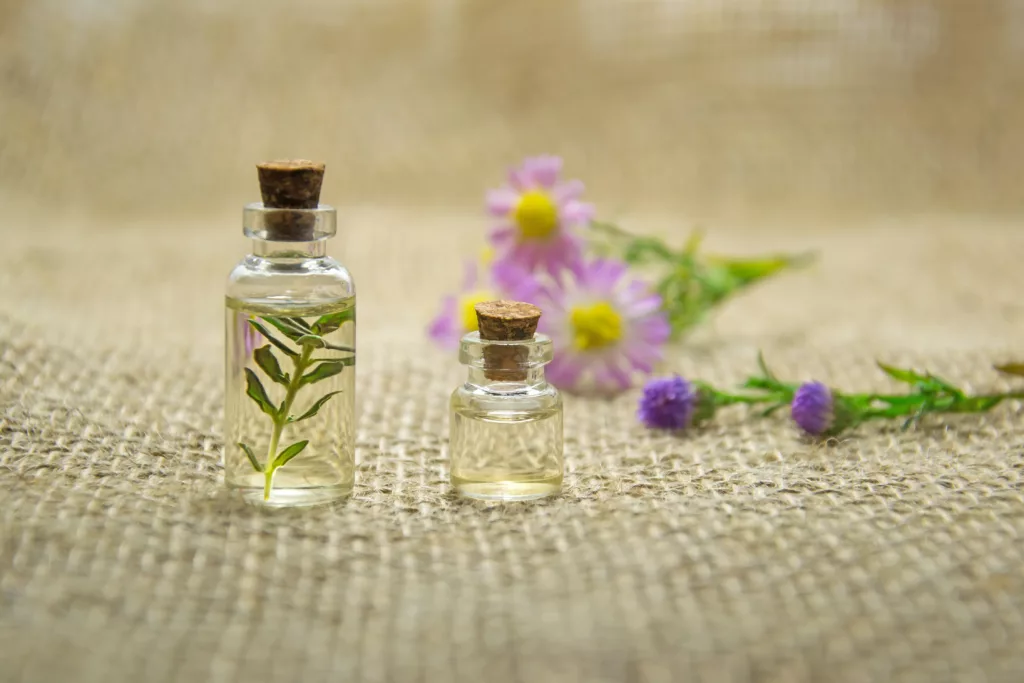
Essential oils for laundry generally include lavender, citrus, and geranium oils. If you do not wish to buy these oils from brands online/offline, you can choose to source these oils through eco-friendly and vegan ways sustainably.
Lavender Essential Oil
- Backyard Lavender Garden: Cultivate a small lavender garden at home. Lavender is a hardy plant that can thrive in various climates. You can ensure a sustainable supply of lavender flowers for oil extraction by nurturing a few lavender plants. Harvest the flowers at their peak and use a steam distillation to create your lavender essential oil.
- Community Herb Swaps: Participate in local herb swaps or community gardens. Engage with fellow gardening enthusiasts and exchange surplus lavender flowers for other herbs or resources. This collaborative approach fosters a sense of community and promotes sustainable sourcing of lavender essential oil.
Citrus Essential Oil (Lemon)
- Citrus Orchard: If you have the space, consider planting a lemon tree or other citrus trees in your backyard. These trees can yield abundant fruits, providing a sustainable source of citrus rinds for cold-pressing or distilling lemon essential oil.
- Citrus Peel Recycling: Save the peels whenever you consume lemons or other citrus fruits. Dry the peels thoroughly and use them to create homemade citrus essential oil. This practice minimizes waste while allowing you to extract valuable oil from a common kitchen byproduct.
Geranium Essential Oil
- Small-Scale Gardening: Geraniums are well-suited for container gardening. Utilize your balcony, windowsills, or small garden space to cultivate geranium plants. Their natural pesticide properties can also help protect other plants, creating a sustainable and mutually beneficial gardening ecosystem.
- Plant Swaps and Cuttings: Engage in plant swaps or cuttings exchanges with friends, family, or local gardening groups. Acquire geranium cuttings from fellow gardeners and propagate them at home. This approach ensures a sustainable source of geranium plants, and fosters plant diversity within your community.
Alternatively, you can buy these essential oils online from ethical brands. Some eco-friendly brands for essential oils are:
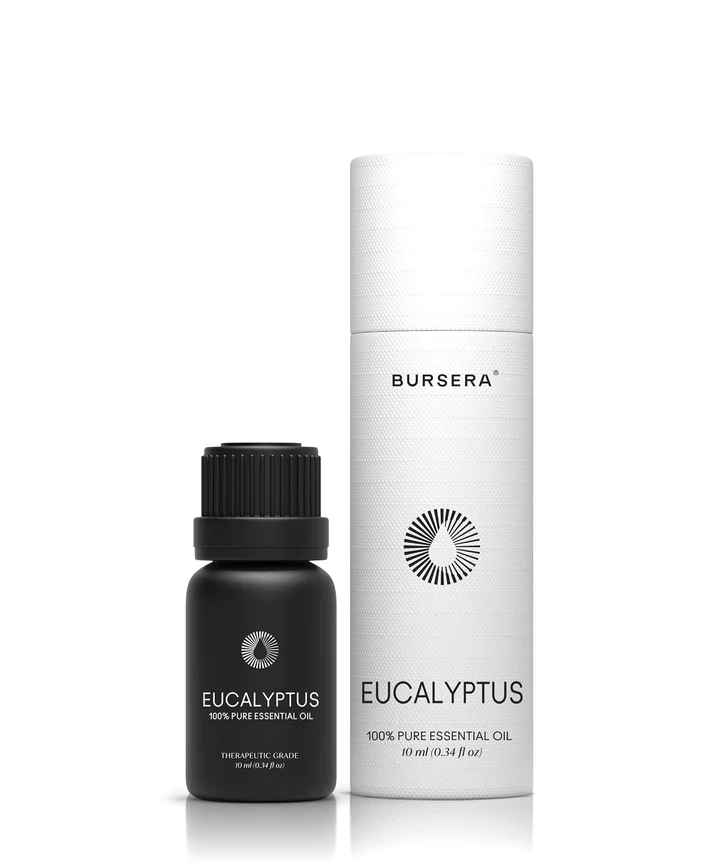
Bursera sets a new standard in aromatherapy with its commitment to ethical sourcing and eco-friendly practices. Their sustainably-derived ingredients and ethical manufacturing processes showcase their dedication to the environment. For every purchase, Bursera plants a tree in collaboration with Trees for the Future, contributing to reforestation efforts in Sub-Saharan Africa. Their carbon-neutral status and 100% sustainable packaging further exemplify their dedication to a greener future.
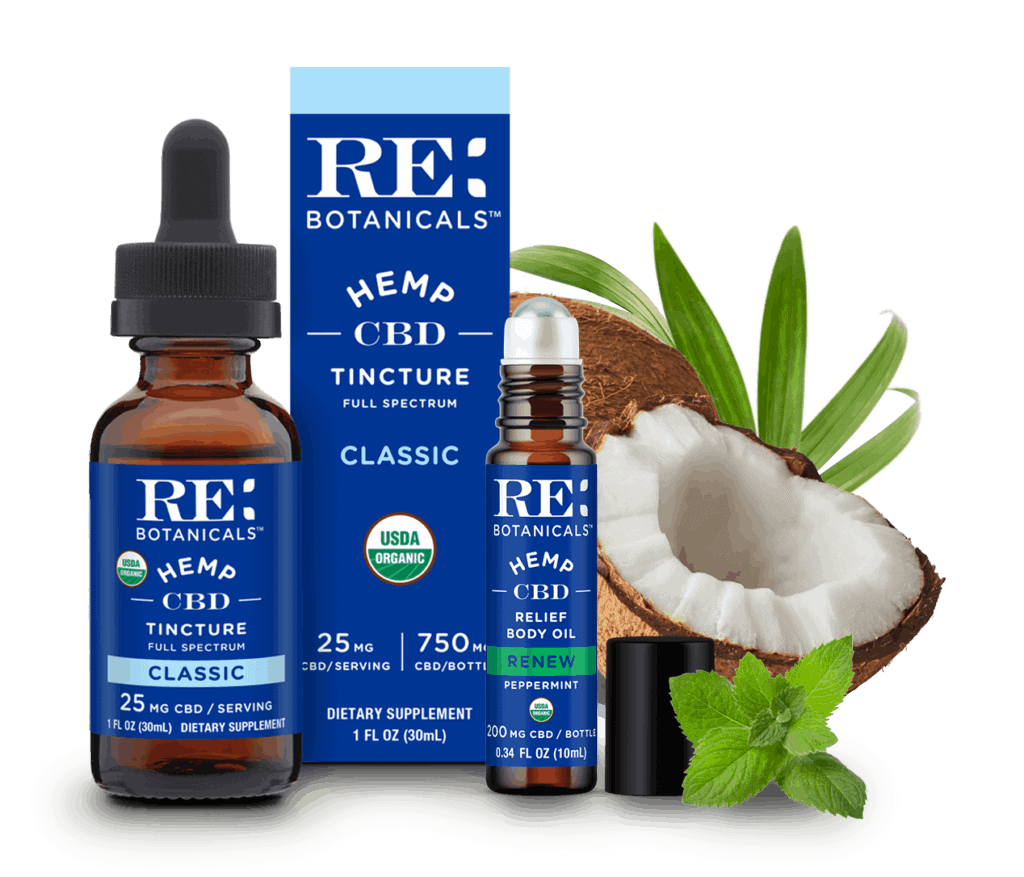
RE Botanicals stands apart with its innovative approach, combining the power of CBD with essential oils to create remarkable roll-on products. As the pioneer in U.S.-grown, USDA-certified organic hemp, RE Botanicals is dedicated to ethical sourcing. Operating from their organic farm in South Carolina, they ensure the entire process – from growth to extraction and bottling – aligns with eco-friendly principles.
3. White Vinegar
White vinegar emerges as a crucial ingredient in crafting eco-friendly dryer sheets. Beyond its natural softening properties, vinegar plays a pivotal role in preserving the fabric’s structural integrity. Its gentle touch ensures that clothes remain supple while also enhancing their longevity. This eco-friendly solution minimizes the need for commercial fabric softeners and stands as a testament to the harmony between natural elements and effective laundry care in sustainable living.
Many eco-friendly brands produce and sell freshly made white vinegar. One Eco-friendly brand is given below:
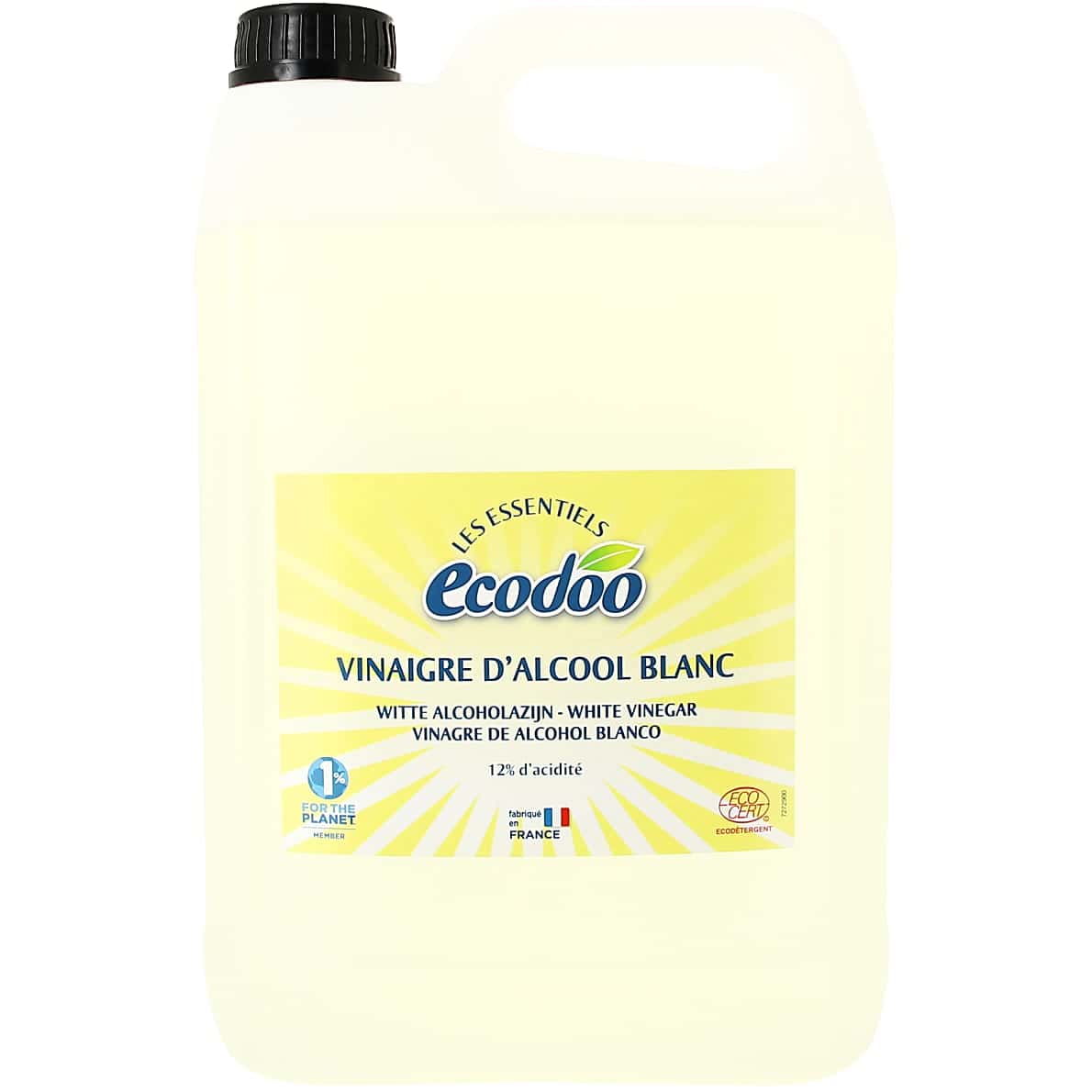
Ecodoo White Vinegar, available in a convenient 5L refill size, epitomizes versatile and eco-conscious cleaning. Embrace natural cleaning prowess while minimizing plastic waste through bulk purchases. Elevate your commitment to environmental sustainability with this larger refill option, aligning your choices with a greener future.
4. A Sealing Container
Selecting the right container is pivotal in crafting eco-friendly dryer sheets. Opting for a sealing container, such as a glass jar, is a sustainable and effective choice. The container safeguards the infused wipes or cloth scraps, preserving their freshness and potency over time. This protective environment ensures that the vinegar mixture retains its effectiveness while securely housing the essential oil-infused materials, making each use a refreshing and fragrant delight for your laundry.
Step-by-Step Guide to Making Homemade Dryer Sheets
Creating eco-friendly dryer sheets is a straightforward and gratifying process combining simplicity, sustainability, and creativity. Here’s a step-by-step guide to crafting your very own reusable dryer sheets:
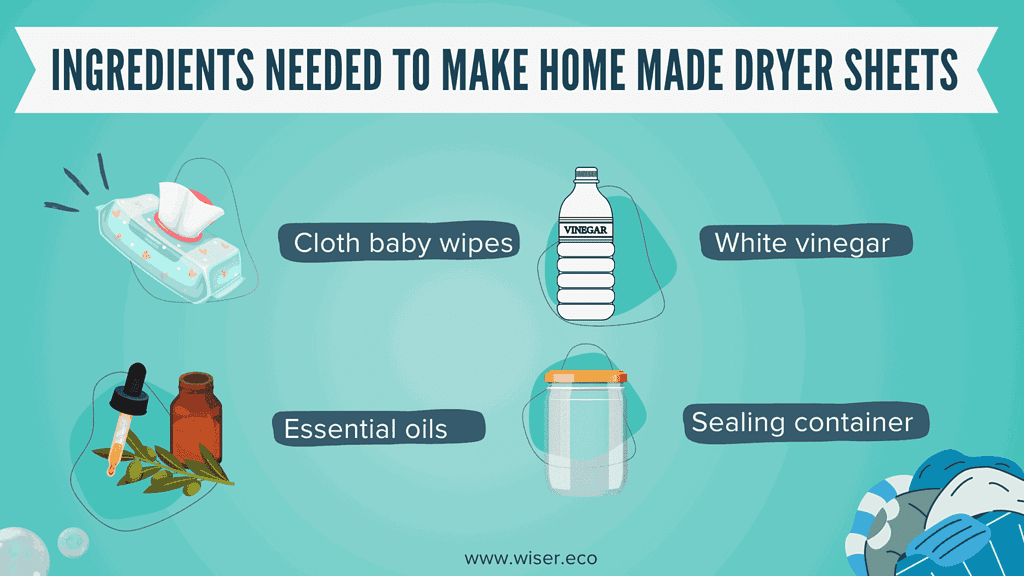
Step 1: Solution Preparation
- Gather your materials – 3 cups of white vinegar and 30-40 drops of your preferred essential oil.
- Combine the white vinegar and essential oil in a spacious bowl. Mix well to ensure a harmonious blend of fragrance and fabric-enhancing properties.
Step 2: Preparing the Sheets
- Obtain cotton cloths, which can be repurposed from old fabric or repurposed cloth wipes. Cut these into squares, aiming for dimensions similar to a standard dryer sheet.
- Place these cloth squares into a container of your choice. Glass jars, eco-friendly pouches, or a resealable container work perfectly for this purpose.
Step 3: Soaking
- Gradually pour the vinegar and essential oil solution over the cloth squares in the container. 2. Ensure each cloth is thoroughly saturated, allowing them to absorb the beneficial properties of the mixture.
Step 4: Drying
- Gently wring out excess liquid from the soaked cloth squares to prevent dripping.
- Lay the dampened sheets flat or hang them on a line to air dry. This step is essential to eliminate excess moisture and retain the sheets’ effectiveness.
Step 5: Usage
- Once the sheets are completely dry, they are ready for use. Simply place a sheet in your dryer along with your laundry load.
- After each drying cycle, remove the used sheet and store it in a separate container designated for used sheets.
Variations and Customizations for Your Homemade Eco-Friendly Dryer Sheets
Creating your eco-friendly dryer sheets opens up a realm of possibilities for personalization. Here are some creative variations and customizations to consider, allowing you to tailor your dryer sheets to your preferences and needs:
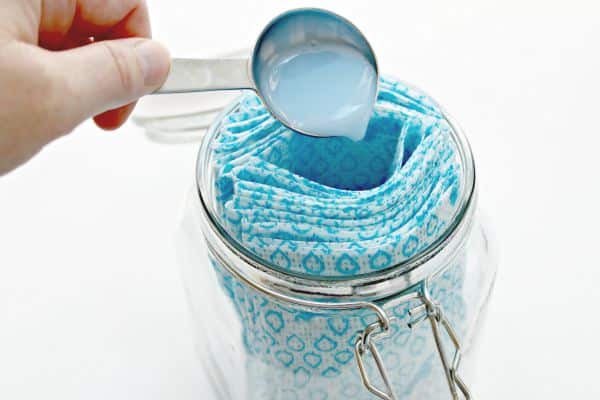
Credits: mom4real
Essential Oils
Mixing and matching essential oils can infuse your dryer sheets with a delightful array of scents. Craft unique signature blends that resonate with your senses and bring a distinct touch to your laundry. For a calming experience, combine lavender and chamomile essential oils, while a zesty fusion can be achieved with lemon and rosemary. Experiment with different combinations to create diverse scents that cater to different moods and occasions.
Fabric Choices
Diversify your homemade dryer sheets by experimenting with various fabric options. While cotton is popular, exploring alternatives like bamboo or hemp can introduce varying softness and durability to your laundry routine. Each fabric type may bring a different texture to your garments, allowing you to customize the tactile experience of your clothes.
Add-ins
Consider incorporating unique additives to enhance the effectiveness of your dryer sheets. Some enthusiasts opt to include a tablespoon of hair conditioner in the solution for an extra touch of softness. This addition can contribute to an even silkier feel for your fabrics, elevating your laundry’s overall comfort and luxury.
Comparative Analysis: Homemade vs. Commercial Dryer Sheets
When choosing between homemade and commercial dryer sheets, a thoughtful evaluation reveals a spectrum of factors that extend beyond mere fabric softening.
| Factors | Commercial Dryer Sheets | Homemade/Eco-friendly Dryer Sheets |
|---|---|---|
| Environmental Impact | Contribute to landfill waste and water pollution. Often single-use and synthetic. | Minimize waste and resource consumption. Reduce strain on ecosystems. Made from reusable fabrics and natural ingredients. |
| Cost | Accumulate costs over time due to repeated purchases. | Initial modest investment. Long-term savings due to reusability. |
| Health | May contain chemicals causing allergies, skin irritation, or respiratory issues. | All-natural composition. Minimize risk of adverse health effects. |
| Reusability | Typically single-use. | Can be reused extensively. Washable versions are available. |
| Vegan Considerations | Might contain animal-derived ingredients or undergo animal testing. | Can be reused extensively. Washable versions are available. |
Maintenance and Storage
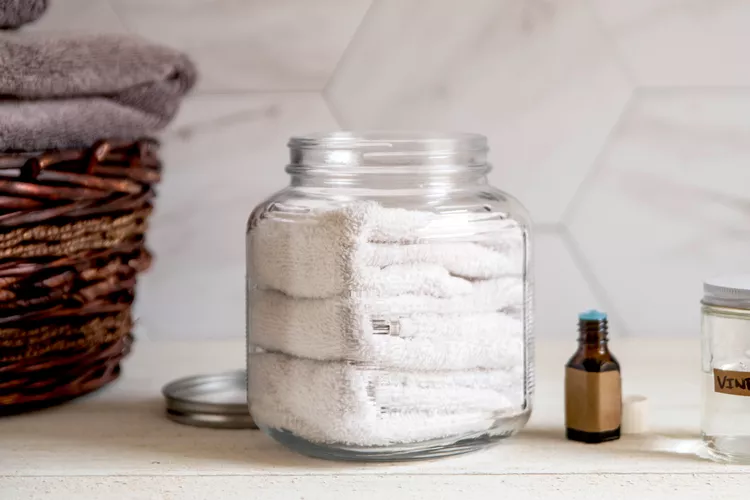
Credits: thespruce
By implementing mindful practices, you can ensure that your eco-friendly dryer sheets continue to deliver their benefits while upholding your commitment to sustainable laundry alternatives.
Refreshing Sheets
To rejuvenate your eco-friendly dryer sheets and optimize their performance, consider re-soaking them in the solution after 2-3 uses. This straightforward step revives the infused fabrics, allowing them to continue delivering the desired softness, fragrance, and static reduction. By periodically refreshing your sheets, you extend their usefulness, ensuring a consistent and delightful laundry experience.
Storing
Efficient storage plays a pivotal role in maintaining the quality of your homemade dryer sheets. It’s crucial to segregate used sheets from unused ones to prevent cross-contamination. Airtight containers, glass jars, or resealable pouches can be ideal storage vessels. These shield your dryer sheets from moisture, light, and external elements, preserving their effectiveness and fragrance for future use.
Benefits of Natural Ingredients in Homemade Dryer Sheets
Amidst sustainable laundry alternatives, the virtues of natural ingredients in eco-friendly dryer sheets shine bright, offering a spectrum of advantages beyond conventional fabric care.
White Vinegar
Beyond its role as a natural softener, white vinegar boasts an array of attributes that elevate its status in fabric care. It is a guardian of colour preservation, safeguarding the vibrancy of fabrics wash after wash. It is particularly advantageous for individuals seeking to prolong the life and allure of their garments. Moreover, vinegar functions as a loyal ally in battling detergent residues. It diligently breaks down and eradicates these remnants, bestowing your clothes a refreshed and pristine feel, making it a boon for those with sensitive skin.
Essential Oils
The enchantment of essential oils extends far beyond their aromatic allure, unfurling a symphony of benefits for your laundry:
- Lavender: Renowned for its serene aroma, lavender is a multifaceted gem that adds more than just fragrance. Its antimicrobial properties infuse your laundry with a shield against unwanted germs, ensuring cleanliness that transcends the superficial.
- Tea Tree: A stalwart defender against fungal and bacterial intruders, tea tree essential oil is a powerful addition to your eco-friendly dryer sheets. Its antifungal and antibacterial properties create an environment hostile to these microorganisms, culminating in laundry that’s not only soft but inherently hygienic.
- Lemon: Harnessing the natural brilliance of lemon essential oil can bring an illuminating effect to your laundry. This citrus marvel embodies natural bleaching properties, subtly brightening whites and light-coloured clothing. The result is a vibrant freshness that captures the essence of sun-kissed days.
Environmental Impact of Commercial Dryer Sheets
As opposed to sustainable laundry alternatives, commercial dryer sheets burden the environment. Let’s find out how.
Non-Biodegradable Materials: Commercial dryer sheets often comprise non-biodegradable synthetic materials. This persistence exacerbates landfill waste, hindering decomposition and burdening our ecosystem.
Chemical Runoff: The chemicals embedded in commercial dryer sheets can infiltrate waterways, imperilling aquatic ecosystems and tainting vital water sources, underscoring the pressing need for sustainable laundry alternatives.
Tips for a Complete Eco-Friendly Laundry Routine
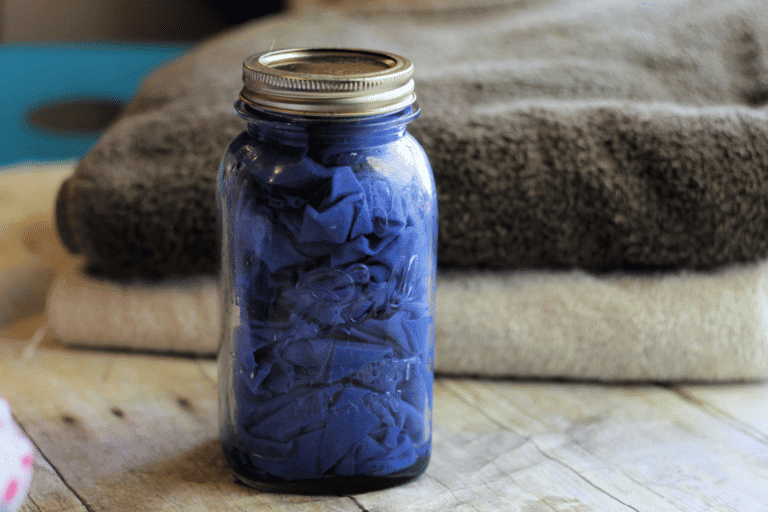
Credits: sixdollarfamily
In addition to adopting sustainable laundry alternatives, you must use eco-friendly dryer sheets in a way that gives your clothes chemical-free fabric care. Homemade or eco-friendly dryer sheets should be merged with green laundry tips to achieve the best outcome.
Cold Washes: Embrace cold water for laundry, conserving energy and diminishing carbon footprint. Cold water effectively cleans while minimizing environmental impact.
Full Loads: Prioritize washing full loads, optimizing water and energy utilization. This eco-conscious practice maximizes efficiency and reduces resource wastage.
Natural Detergents: Select eco-friendly laundry detergents for eco-friendly dryer sheets, devoid of harmful chemicals and packaged sustainably. This choice champions both cleanliness and environmental preservation.
Air Dry: Harness the power of air drying whenever feasible. It conserves energy and nurtures fabric longevity, aligning seamlessly with a green laundry ethos.
Community and Sharing
Engaging in sustainable laundry alternatives extends beyond personal actions; it thrives in community and shared knowledge. The popularity of eco-friendly dryer sheets is extended through:
Workshops
Participate in or initiate local workshops spotlighting eco-conscious home solutions, including homemade dryer sheets. These immersive experiences cultivate a dynamic learning environment, enabling individuals to exchange insights, techniques, and practical wisdom. As you collaborate within your community, you contribute to a shared understanding of sustainable fabric care, galvanizing positive change.
Online Communities
Utilize the digital realm by joining online forums and social media groups dedicated to sustainable laundry alternatives. Sharing your journey with homemade dryer sheets inspires a virtual community of like-minded individuals. Your experiences, challenges, and triumphs serve as guiding beacons, encouraging others to adopt eco-friendly dryer sheets and fostering a collective spirit of environmental responsibility.
By harnessing the power of community and sharing, you amplify the impact of eco-friendly dryer sheets, creating a ripple effect that resonates far beyond your immediate surroundings.
FAQs
How long do homemade dryer sheets last?
Ans. With proper care, they can last for several months.
Can I add other ingredients?
Ans. Yes, some people add Epsom salts or baking soda for added benefits.
Do homemade dryer sheets remove static from fabrics?
Ans. Yes, homemade dryer sheets have static-removing properties.
Are homemade and eco-friendly dryer sheets the same?
Ans. Yes, eco-friendly dryer sheets can be easily made at home with DIY recipes.
Are there other sustainable laundry alternatives to eco-friendly dryer sheets?
Ans. Other sustainable laundry alternatives include essential oils, white vinegar and other natural fabric softeners.
Conclusion
By choosing homemade dryer sheets, you’re reducing your carbon footprint and advocating for a healthier living environment. As we’ve delved deeper into sustainable laundry alternatives’ benefits and broader context, it’s evident that every choice matters. Every step counts, whether the ingredients we use, the routines we adopt, or the communities we engage with. Let’s continue championing eco-friendly dryer sheets and inspiring those around us to do the same.
Dive deeper into DIY magic! Explore our Home & Lifestyle blogs for innovative hacks and eco-friendly insights that’ll transform your everyday living. Discover More Now!”
